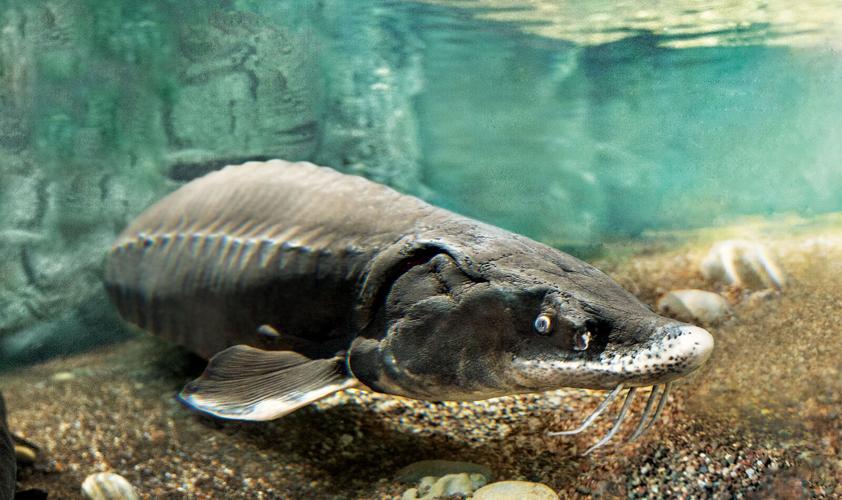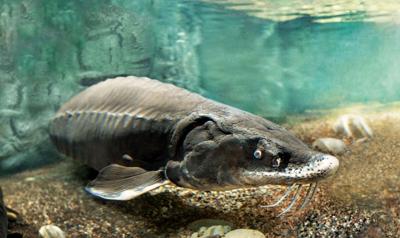At the Shedd Aquarium, visitors can encounter the lake sturgeon, a species that predates even the dinosaurs featured in the new film "Jurassic World Rebirth." Known as a living fossil, the lake sturgeon is native to the Great Lakes and has remained largely unchanged for roughly 136 million years—Shedd Aquarium announced in a press release—making it a living testament to Earth's ancient past. For comparison, the aquarium states that the Tyrannosaurus rex existed around 67 million years ago.
This prehistoric fish features a torpedo-shaped body covered in bony plates rather than scales, offering a tangible link to the past. As reported by the aquarium, visitors can interact directly with these ancient creatures in the Sturgeon Touch habitat, part of the At Home on the Great Lakes exhibit. According to the press release, the fish use their four barbels to detect the tastiest morsels on the river and lake beds—primarily insects, crustaceans, small clams, and snails.
Read More on Chicago Star
- Brookfield Zoo Chicago spots a win with birth of two rare Amur leopard cubs
- Chicago Air & Water Show to celebrate 250th anniversary of US Army & Marine Corps
- “From Zero” to hero: Linkin Park gets ready to blow the roof off United Center
- Orangutans go ape over Brookfield Zoo Chicago’s new primate paradise

Sturgeon Touch habit | Photo by Shedd Aquarium
Conservation efforts at Shedd
The lake sturgeon holds the distinction of being the oldest and largest fish in local freshwater habitats, though it is classified as an endangered species in Illinois. According to Shedd Aquarium, overfishing and barriers like dams that obstruct their natural spawning migrations pose significant threats to the species' survival. The aquarium is also home to other sturgeon species, including the Atlantic and Pallid sturgeons, which contribute to their broader conservation efforts.
For those curious about these extraordinary fish and their peers in the category of living fossils, visiting Shedd Aquarium offers a unique educational opportunity. The institution serves as both a sanctuary and a spotlight for these incredible remnants of prehistoric times, offering insights into their continued relevance and pressing conservation needs.










(0) comments
Welcome to the discussion.
Log In
Keep it Clean. Please avoid obscene, vulgar, lewd, racist or sexually-oriented language.
PLEASE TURN OFF YOUR CAPS LOCK.
Don't Threaten. Threats of harming another person will not be tolerated.
Be Truthful. Don't knowingly lie about anyone or anything.
Be Nice. No racism, sexism or any sort of -ism that is degrading to another person.
Be Proactive. Use the 'Report' link on each comment to let us know of abusive posts.
Share with Us. We'd love to hear eyewitness accounts, the history behind an article.